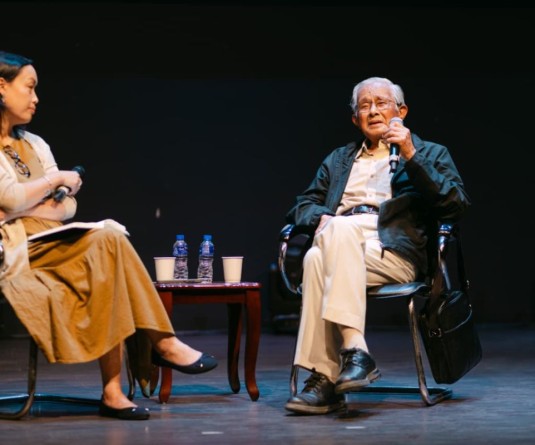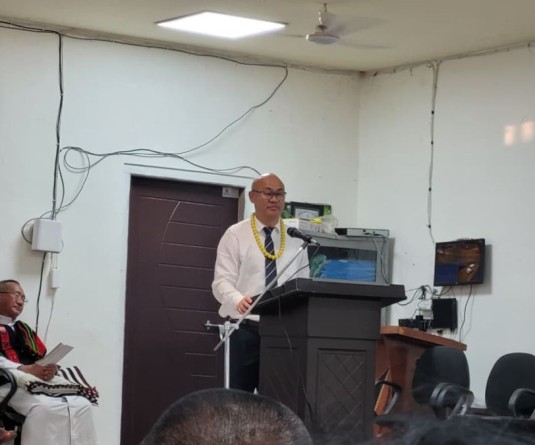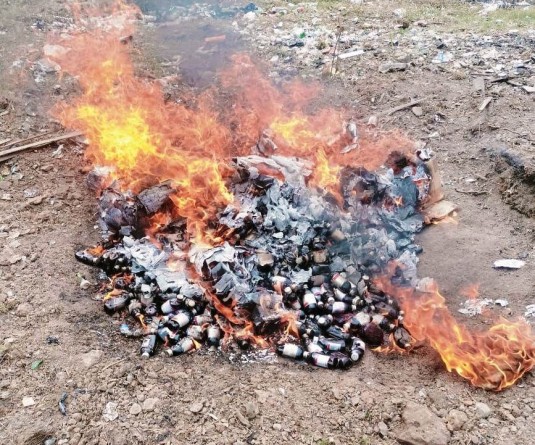Photo for representational purpose only_pixabay image
.jpg)
COVID-19: Nagas in Delhi share their second wave experience –II
Morung Express News
Dimapur | May 6
As India’s capital struggles with perhaps the biggest challenges of the COVID-19 pandemic so far, the Naga community in Delhi is no exception. However, help is coming in the forms of community spirit, innovative networking, and faith, engendering both virtual and practical assistance and serving as a COVID-19 lifeline.
There is an effort to galvanise the tribe units, Churches, community and students’ leaders as much as possible to have a coordinated and cohesive response. This involves pooling together networks as well as mobilisation of resources, informed L Yaden, who is actively involved in such activities.
Doctors from the community have been taking care of COVID positive patients in home care through free tele-consultation while we try to obtain oxygen cylinders for such patients, he said.
Networking, home remedies & consultation
“Humanity is not lost in the virtual world at least during this current pandemic,” opined Elvina S Amongla, who teaches English literature at a college in Delhi University.
Among others, it involved reaching out to the COVID patients who are isolated at home by dropping hygienic and nutritious home cooked food with prescribed medicines or giving verified health care contact numbers that are practically helpful.
Some tribal union members have shouldered the responsibility to search for oxygen at every known agency and even procured one or two with much difficulty so that lives can be saved, she narrated.
“Such collective network of following up the leads of hospital beds with oxygen, availability of plasma blood donor, medicines, etc by calling up various numbers put up in social media platforms has been a grueling exercise. But the joy of getting verified contact number is worth the painstaking effort,” she added.
Amid the pandemic, this is crucial, Elvina maintained, as there are numbers of parallel fraudsters who are selling fake medicines or demanding advance amount for the medical service they apparently promise to provide, and disappear once the money has been transferred.
This ‘helping hand’ mechanism is not only occurring within the circle of like-minded people, but most students’ unions and tribal units in Delhi, and throughout Delhi, she added.
Naga Scholars Association President, Dr Zuchamo Yanthan concurred with her, saying many students unions, tribal units, and churches are working together.
At the ground level, the Special Police Unit for North-Eastern Region (SPUNER) has been doing a commendable job, said Maivio J Woba, who is closely associated with the unit.
While the unit has been getting calls on its helpline (8750870582/1093) from all states in panicky mode, this has lessened during the last three days as infections went down, he informed The Morung Express on Wednesday. He however stated that it might increase again.
Apart from providing access to healthcare facilities, the unit has been reaching out and answering distress calls while providing logistic support and arrangements in case of deaths.
‘Medical Ministry’
While the health care system is being stretched beyond the limit, people are turning to God, Elvina stated, adding that the Church, fellowship elders and leaders alike have stepped in to reach out to the congregation.
“Comforting words, assurance, human touch via virtual communication and keeping in constant touch with those in need or distress are powerful in such situations as people’s mental health is a huge concern,” she said.
One Church elder suggested activation of a ‘Medical Ministry’ in Churches to extend assistance. To this end, some Church and tribal units met on May 3 to discuss establishment of an emergency response centre for Nagas and other NE communities.
According to the elder, the main emerging issues are lack of oxygen beds, oxygen cylinders and concentrators.
“One of the challenges is that many are living alone making it very difficult to coordinate. Even when an oxygen cylinder is found, the logistics of picking it up from location and dropping it to the patient has its own challenges. Further, even in cases where dropping of cylinders has been managed, how long can it last? This leads to the question of refilling the same. Even when a facility for refill is found, it invariably involves standing in queue for 8-9 hours without any guarantee of a refill,” he said.
However, such measures are more of a stop gap arrangement and the need for a structured community or organisational response to sustain the effort were discussed at the meeting.
The idea is to start COVID Care Centres (CCC) at different locations, in schools which can accommodate 25-50 NE patients and have a readymade infrastructure of large classrooms, auditoriums etc which are equipped with fans, wifi broadband, LCD monitor screens, adequate washrooms and toilets, RO for drinking water etc, he informed.
The meeting also envisaged a three-pronged strategy to move the plan forward.
The first involves giving basic home care facilities – by trying to get hold of or purchasing oxygen concentrators and cylinders and treating the COVID patients to arrest the infection at early stage.
Secondly, to bring the tribal units together and to design a common strategy by combining resources and raising funds to start Covid Care Centres in three or four locations in Delhi with a large concentration of Naga and NE communities. The third is to raise funds and install compact oxygen generators – which can serve up to 50 patients at a time, which can ease the pressure of oxygen demand in small and medium sized hospitals.
“We are currently coordinating with Embassies, Corporate Houses and individuals to donate in kind to hospitals thereby also benefiting the Nagas and the NE community in need of critical care/ hospitalisation,” the elder said. “Donation of any kind for the centre, volunteers and others are welcome from those in Delhi as well as back home,” he said.
“These humane endeavours have created a sense of belongingness and comfort amongst our people amidst rampant hopelessness. Life does matter! Somehow what keeps us going is that,” Elvina said.
It must be noted here that Nagaland Emergency Centre Delhi (NECD) - comprising of Government representatives, elders, tribal units, students unions and others – at Nagaland House New Delhi was also ‘reactivated’ on May 5 in view of the ongoing second wave in Delhi.






